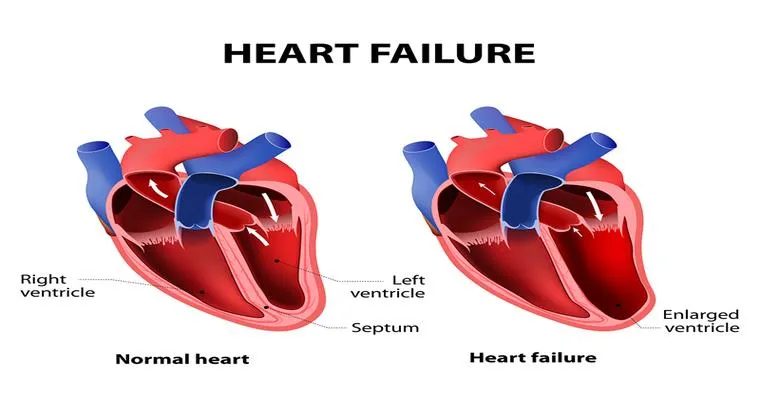Caring for a "loved one" with "heart failure" can be a challenging yet rewarding experience. Understanding the condition and providing the right support is crucial for both the caregiver and the patient. Heart failure is a serious condition where the heart is unable to pump blood effectively, leading to symptoms such as fatigue, shortness of breath, and fluid retention. This article will guide you through essential tips and strategies for providing the best care to your loved one while also taking care of yourself.
Understanding Heart Failure
Before you can effectively care for someone with heart failure, it is important to understand the condition. Heart failure can be caused by various factors, including coronary artery disease, high blood pressure, and diabetes. It is not a single disease but rather a collection of symptoms that indicate the heart is not functioning properly. By learning about the condition, its causes, and its symptoms, you can better support your loved one.
Creating a Care Plan
Developing a comprehensive "care plan" is essential for managing heart failure. This plan should include:
1. "Medication Management": Ensure that your loved one takes their medications as prescribed. Understanding the purpose of each medication can help you monitor for side effects and effectiveness.
2. "Dietary Adjustments": A heart-healthy diet is crucial. Focus on low-sodium meals, plenty of fruits and vegetables, whole grains, and lean proteins. Encourage your loved one to avoid processed foods and limit their fluid intake if advised by their healthcare provider.
3. "Regular Exercise": Encourage appropriate physical activity, as approved by their healthcare team. Gentle exercises like walking or swimming can improve heart function and overall well-being.
4. "Monitoring Symptoms": Keep an eye on any changes in your loved one's condition. Note any increased shortness of breath, swelling, or sudden weight gain, and communicate these changes to their healthcare provider.
Emotional Support
Caring for someone with heart failure can take an emotional toll. Your loved one may experience feelings of anxiety or depression, which is why providing emotional support is just as important as physical care. Engage in open conversations about their feelings, offer reassurance, and encourage them to share their concerns. Sometimes, simply being present and listening can make a significant difference.
Educating Yourself and Your Loved One
Knowledge is power. Educate yourself about heart failure and its management. Resources such as support groups, online forums, and educational materials from healthcare providers can be invaluable. Encourage your loved one to participate in their own care by learning about their condition, which can empower them and improve their quality of life.
Taking Care of Yourself
As a caregiver, it is vital to prioritize your own health and well-being. Caregiver burnout is a real concern, and taking time for self-care is essential. Here are some strategies to help you maintain your own physical and emotional health:
1. "Set Boundaries": It is important to know your limits and not take on more than you can handle.
2. "Seek Support": Don’t hesitate to ask for help from family, friends, or professional caregivers. Support groups can also provide a safe space to share experiences and advice.
3. "Take Breaks": Schedule regular breaks to recharge. This could be a short walk, a hobby, or simply time spent with friends.
4. "Maintain Healthy Habits": Eat well, exercise, and ensure you get enough sleep. These habits will help you manage stress and remain physically capable of providing care.
Conclusion
Caring for a loved one with heart failure requires a multifaceted approach that combines medical management, emotional support, and self-care. By understanding the condition and implementing a comprehensive care plan, you can make a significant positive impact on your loved one's life. Remember, it is equally important to take care of yourself in the process. With the right knowledge and support, you can navigate this journey together, improving the quality of life for both you and your loved one.





